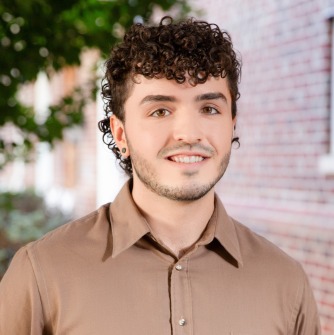My degree from Salem State University doesn’t start with “environment,” “climate,” or “earth.” It starts with “geography,” and the environmental stuff follows. The full degree is titled “Geography and Sustainability” (with a concentration in environmental sustainability). So, technically, my degree is in geography. Which—if you ask anyone I’ve ever played Jeopardy! with—is not my strong suit. Don’t tell the geography department.
No, my strong suit lies in the green stuff. The “and sustainability” stuff. I like learning about consumption, degrowth, policy, waste, food, climate science, environmental justice, etc. Those classes were the ones in which I hit my stride. I was lucky – I am lucky – that my professors encouraged me to dig into those topics – to ask unusual, challenging questions and hunt for answers. That encouragement, playfulness, and push (and, admittedly, a class called “Saving the World”) launched me into a career in climate work.
Today, almost two years post-graduation, I’m a climate communications specialist for Kim Lundgren Associates. This consulting firm helps local governments create and implement their climate action plans with a specialization in storytelling and community engagement. I feel lucky to work in a full-time, salaried position in the field I studied. In the current job market, many graduates can’t say the same. What got me this job wasn’t some high-powered connection made at a ritzy alumni dinner or a resume featuring the name of some $150,000-a-year institution with a budget higher than some island nations. Truthfully, I got my job because I had Salem State professors and staff who gave me the time, space, and care I needed to pursue every avenue of my interests while completing my degree.
“Pursuing my interests” in this context means figuring out what I didn’t want to do. Over my four years at Salem State, I worked eleven jobs: a mishmash of internships, work-study jobs, assistant positions, and contract gigs. Some were directly in my current field, like my internship with the university’s sustainability office, and some weren’t, like my first research assistant position with a botany professor. I was constantly going down paths to see if I enjoyed the work and if I could see myself doing it as a career. That was the beauty of being a student at Salem State: my professors, supervisors, classmates, and friends encouraged me to try everything. There are about a hundred million-billion-trillion different types of jobs in the climate space – how was I supposed to know which one I wanted to pursue without at least trying a few?
I understand that having eleven jobs is ridiculous and, ironically, unsustainable, so I’m not recommending that. Instead, I urge students to lean on their Salem State community – their professors, work-study supervisors, classmates, club friends, sports friends, RAs, that person you beat to the sandwich line in Marsh Dining, everyone – for support and guidance. The true beauty of a school like Salem State is its community, where we are more than willing to lift each other up. Take advantage of that! The title of this piece specifies climate work, but, truly, I think this advice applies to almost every kind of career. While the geography and sustainability department is incredible, I also had mentors from the English, political science, media and communications, and biology departments, the Honors program, the Center for Civic Engagement, and the sustainability office.
So, get out there and take advantage of everything Salem State offers. It's your life and career; most of us only get four short years at school. Use them! When you’re finally out in the world, you’ll miss all that time you spent ranting to your professor about your career goals and dream job during their weekly office hours.
Inspiring Action Through Storytelling: Having Better Conversations About Climate Change with Joey Wolongevicz '22
Thursday, March 28, 4:30-5:30 pm | Zoom
We all struggle with difficult topics like climate change, especially when trying to change someone's behavior or perspective. This workshop will equip attendees with a basic understanding of using simple storytelling tactics to have more productive and meaningful climate conversations with friends, family, and even strangers.

